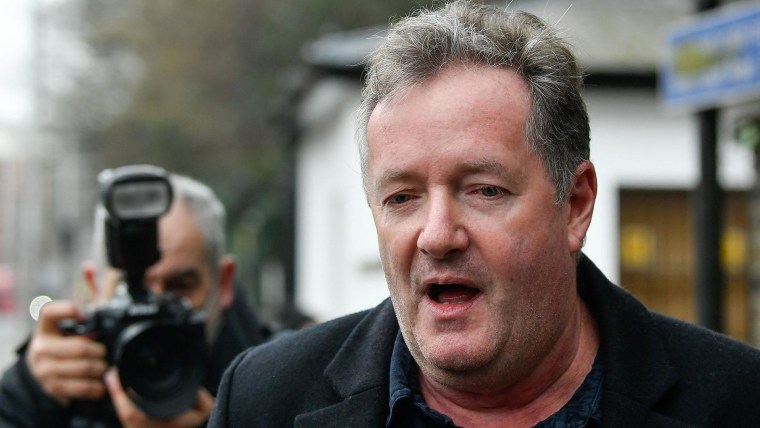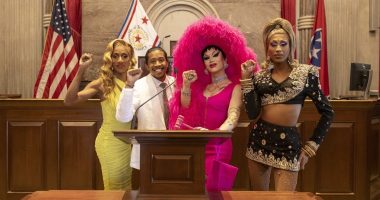A United Kingdom media regulator cleared broadcaster Piers Morgan in a probe sparked by controversial comments he made about Meghan, the Duchess of Sussex, during an episode of ITV’s “Good Morning Britain.”
In March, the Office of Communications announced it was investigating the news program under its “harm and offence rules” after it received more than 50,000 complaints about Morgan’s remarks on Meghan and Prince Harry’s interview with Oprah Winfrey.
The monthslong investigation concluded on Wednesday when the office said it found that Morgan’s comments did not breach its broadcasting rules.
“This was a finely-balanced decision. Mr Morgan’s comments were potentially harmful and offensive to viewers, and we recognise the strong public reaction to them. But we also took full account of freedom of expression,” the office said in a statement.
“Under our rules, broadcasters can include controversial opinions as part of legitimate debate in the public interest, and the strong challenge to Mr Morgan from other contributors provided important context for viewers.”
The office went on to say that it has reminded ITV “to take greater care” when its program includes discussions on mental health and suicide.
“ITV might consider the use of timely warnings or signposting of support services to ensure viewers are properly protected,” the office said in its statement.
During the March 8 episode, Morgan said he was “sickened” by Meghan and Prince Harry’s interview with Winfrey and called it a “trash-a-thon” of the monarchy. Morgan, who has been known to publicly attack the Duchess, went on to criticize the couple for dropping a “race bombshell” regarding an alleged conversation in which a family member questioned how dark their children’s skin would be.
Morgan also implied that he didn’t believe Meghan when she described having suicidal thoughts.
“I don’t believe a word she says, Meghan Markle,” Morgan said during the program. “I wouldn’t believe it if she read me a weather report, and the fact that she fired up this onslaught against our royal family I think is contemptible.”
Following backlash over his comments and the office’s announcement of an investigation, ITV said that Morgan had decided to leave the show.
ITV did not immediately return a request for comment Wednesday. The broadcaster celebrated the news in a series of tweets.
“I’m delighted OFCOM has endorsed my right to disbelieve the Duke & Duchess of Sussex’s incendiary claims to Oprah Winfrey, many of which have proven to be untrue,” Morgan tweeted. “This is a resounding victory for free speech and a resounding defeat for Princess Pinocchios.”
He added: “Do I get my job back?”
The Office of Communications released a 97-page report detailing its findings and said a majority of the complaints it received said Morgan’s comments were harmful and offensive.
A significant number of viewers said Morgan’s remarks dismissing Meghan’s account of having suicidal thoughts could potentially cause people from seeking help out of fear they will not be taken seriously, according to the report.
Many people described his comments as “harmful rhetoric” that “made a mockery of suicide.” Others complained that Morgan’s belittling of Meghan’s personal account of experiencing racism was highly offensive and “incited hatred and racism.”
More than 800 people sent the office messages in support of Morgan, it said in its report.
The office said its investigation found that the show “contained sufficient challenge to provide adequate protection and context to its viewers” regarding Morgan’s remarks on mental health and suicide.
When it came to Morgan’s comments on race, the office said his remarks “were sufficiently contextualised.”
“Therefore, our decision is that the programme did not breach the Ofcom Broadcasting Code,” it said in the report.
The office went on to say in the report that Morgan “was entitled to say he disbelieved the Duke and Duchess of Sussex’s allegations and to hold and express strong views that rigorously challenged their account.”
“The Code allows for individuals to express strongly held and robustly argued views, including those that are potentially harmful or highly offensive, and for broadcasters to include these in their programming. The restriction of such views would, in our view, be an unwarranted and chilling restriction on freedom of expression both of the broadcaster and the audience.”
Source: | This article originally belongs to Nbcnews.com











